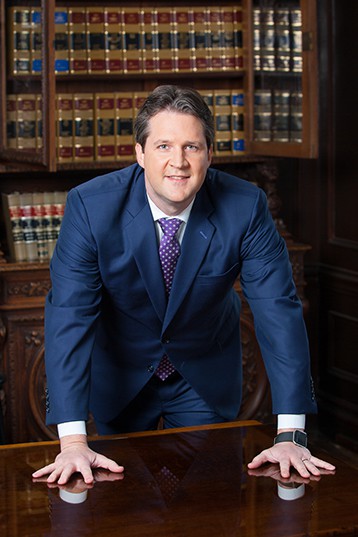Shelby County Assistant District Attorney Receives Public Censure
When Tennessee attorneys are found to have committed misconduct, there is a range of consequences which the Tennessee Supreme Court’s Office of Professional Responsibility may impose upon them. One such consequence is censure, which is a public warning to an attorney which does not affect their ability to practice law.
Shelby County Assistant District Attorney Thomas Henderson was recently censured by the Tennessee Supreme Court’s Office of Professional Responsibility. Henderson is also responsible for paying the court costs for the disciplinary proceedings which led to the censure. The censure of Henderson is the result of an error that he made in not disclosing a piece of evidence in a capital murder case. Henderson claims that he made a simple, human error in forgetting to properly disclose the piece of evidence, and he has pled guilty to the error.
In addition to having to endure being publicly censured and paying court costs, Henderson is no longer able to work on the case in which he committed the error. No further consequences will be imposed on Henderson, as the consequences which have already been imposed are quite serious. While censure and removal from a case may not seem like a serious punishment to someone outside of the practice of law, those in practice understand just how significant these consequences are. Not only does a public censure make everyone aware that you broke the rules, it is only two steps away from the ultimate punishment that an attorney can receive – disbarment.
The case which ultimately led to Henderson’s censure started with a crime that happened in February of 1997. A woman named Ricci Ellsworth disappeared from the Memphis Inn, where she had been working as a night clerk. Her car was in the motel parking lot, but her body has still not been found. Early on in the case, an eyewitness gave police descriptions of two men that he had seen at the motel on the night that Ellsworth disappeared. After the men had been located and a photo of one of them had been added to a photo spread, Henderson brought the man whose photo had been added to the photo spread, Billy Wayne Voyles, to Tennessee to questioning. Voyles provided an alibi, and claimed that eight people could verify it.
Voyles was excluded from the investigation, and the case went on. Other suspects were identified, and a man named Michael Dale Rimmer became a prime suspect. Before Rimmer’s trial, his defense attorneys asked Henderson whether he was aware of any evidence which could potentially exculpate their client. Henderson remarked that he was not aware of any, and provided the attorneys with names and addresses of all of the witnesses that he had questioned over the course of the case. He also told them where the photo identification spreads were located, so that they could go and look at them if they do desired. Henderson says that he did not intend to exclude information about his interactions with Voyles early on in the case, asserting that he simply forgot about the eyewitness identification of him as the case went on because he was no longer a person of interest.
Legal malpractice can happen in any kind of case, from transactional matters like real estate transactions to civil matters, and even criminal matters like the Rimmer murder trial. The Tennessee legal malpractice attorneys at Bailey & Greer, PLLC, have the background and expertise to get justice for those who have been the victims of legal malpractice. We will take the time to evaluate your case, and we will provide honest answers to all of your questions. Call us today, at 901-680-9777, to arrange a consultation with us. At Bailey & Greer, PLLC, we are small enough to care, big enough to fight, and experienced enough to win.

Since graduating magna cum laude in 2005 from the University of Memphis School of Law, Thomas has helped make a difference in the lives of victims of serious personal injury, wrongful death, and professional negligence. Thomas has extensive trial experience in both state and federal court. Among other victories in the courtroom, Thomas obtained several impressive jury verdicts and settlements
Read more about Thomas R. Greer
